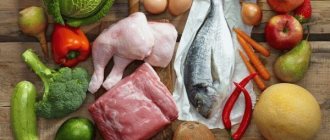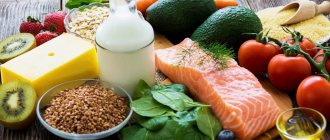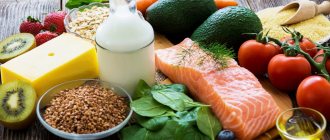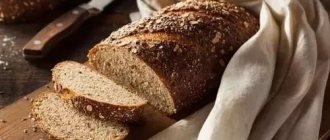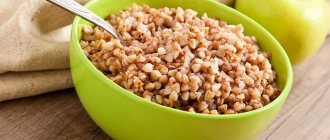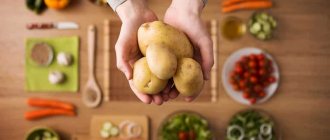- home
- Articles about training
- Nutrition for gaining muscle mass for men
Proper nutrition for gaining muscle mass is no less important than intense strength training. If, despite working hard in the gym, your muscles are not growing, this means that you are making one of the common mistakes.
● Eat too little. Starvation diets are not helpful in building muscle. Energy costs need to be replenished regularly.
● On the contrary, you eat too much and incorrectly: you overdo simple carbohydrates (baked goods, fruits, sweets), and do not maintain the balance of proteins, fats and carbohydrates (BJU). Muscle growth occurs, but it is not noticeable under the layer of fat.
● You do not follow the correct diet. For example, during the day you take uneven intervals between meals or don’t eat all day, and by the evening you break down. This diet is also not suitable for gaining muscle mass: metabolism slows down, nutrients simply do not have time to be absorbed.
Calorie content of food and BZHU ratio
Nutrition for gaining muscle mass for men depends primarily on body weight and energy expenditure. To gain the minimum required amount of calories daily, calculate your individual BJU ratio using the formula 1 kg of weight = 2/0.7/4 in grams, respectively.
When drawing up a proper nutrition plan, focus on the following calorie content: 1 g protein/carbohydrate = 4 Kcal, 1 g fat = 9 Kcal. Carbohydrates will serve as your main source of energy during training; proteins will go towards muscle growth and strengthening. The richest foods in protein are meat and dairy. Soybeans, legumes and nuts contain many important amino acids.
The given formula for calculating BZHU is average. When gaining weight, a lot depends on your body type and metabolic rate. If muscle growth does not occur over time (for example, due to a fast metabolism), change the proportions in the diet towards more carbohydrates. Study your body and experiment!
Calorie and macronutrient needs
The goal for competitive bodybuilders is to increase muscle mass during the bulking phase and reduce body fat during the improvement phase. Therefore, you consume more calories in the bulking phase than in the improving proportions phase.
How many calories do you need?
The easiest way to determine how many calories you need is to weigh yourself at least three times a week and write down what you eat.
If your weight remains the same, the number of calories you consume each day are your maintenance calories—in other words, you are not losing or gaining weight, but maintaining it.
During the muscle building phase, it is recommended to increase your calorie intake by 15%. For example, if your maintenance calories are 3,000 per day, you should eat 3,450 calories per day (3,000 x 0.15 = 450) during the bulking phase ().
When you move from the bulking phase to the improving proportions phase, you need to reduce the number of calories you consume by 15%, which means that you will consume 2550 calories per day instead of 3450.
As you gain weight in the bulking phase or lose weight in the improving phase, you will need to adjust your calorie intake at least every month to account for changes in weight.
Increase your calorie intake as you gain weight in the bulking phase and decrease your calorie intake as you lose weight in the bulking phase to continue your progression.
During any phase, it is recommended not to lose or gain more than 0.5-1% of your body weight per week. This will ensure that you don't lose too much muscle during the bulking phase or gain too much fat during the bulking phase ().
Macronutrient ratio
Once you determine your caloric intake, you can determine your macronutrient ratio, which is the ratio between your protein, carbohydrate, and fat intake.
Unlike the difference in your calorie needs between bulking and bulking phases, your macronutrient ratio does not change.
Protein and carbohydrates contain four calories per gram, while fat contains nine.
It is recommended that you receive (, ):
- 30-35% of your calories from protein
- 55-60% of your calories from carbohydrates
- 15-20% of your calories from fat
Below is an example of the ratio for both the mass gain phase and the proportion improvement phase:
| Mass gain phase | Proportion improvement phase | |
| Calories | 3450 | 2550 |
| Protein (grams) | 259-302 | 191-223 |
| Carbohydrates (grams) | 474-518 | 351-383 |
| Fat (grams) | 58-77 | 43-57 |
These are general guidelines, so it is best to consult with a professional nutritionist to determine your individual needs based on your goals.
Summary:
Recommended calorie intake, but not your macronutrient ratio, differs between bulking and bulking phases. To account for weight changes, adjust your calorie intake every month.
Optimal diet
The number of meals in a weight gain diet for men may vary. On average, try to eat little but often: 4-7 times a day with breaks of 2.5-3 hours. At least three meals should contain a significant portion of protein. This diet promotes the production of growth hormones (very important for muscles) and reduces the level of the stress hormone cortisol.
Main meals will look like this.
● Breakfast is vital to fuel your energy for the day ahead. It should consist mainly of carbohydrates (cereals) and proteins (eggs, cheese, cottage cheese, yogurt).
● The main components of the lunch diet are complex carbohydrates (for example, whole wheat pasta) and proteins (meat, fish). If desired, add a vegetable dish seasoned with oil (cold first-pressed and extra virgin oils have the most beneficial properties).
● Make a proper dinner from proteins and vegetables; it is better to postpone carbohydrates until the next morning. Eat your last meal no later than 1-2 hours before bed. It should be an easily digestible protein that won’t weigh on your stomach – kefir or cottage cheese.
You can have a snack between main meals with fresh or dried fruits and dairy products. The best sources of healthy fats in your workout menu are nuts or avocados. Sports nutrition is also great for snacking while gaining muscle mass.
Features of nutrition when gaining weight
It must be remembered that the growth of new muscle fibers, that is, an increase in muscle mass, occurs only under conditions of regular physical activity and training. In addition to this, you need to increase your caloric intake to 500 kcal above the daily level. According to calculations by the Russian Academy of Medical Sciences (RAMS), a healthy man with average physical activity needs approximately 2100 kcal per day to replenish the energy balance. That is, in order for an effective increase in muscle mass to occur, a man needs about 2600 kcal, while maintaining the ratio of proteins, fats and carbohydrates.
Squirrels
Proteins are organic substances consisting of various amino acids and performing certain functions, including being part of muscle fibers, participating in metabolism, forming vitamins and compounds with other substances (fatty acids and salts). A healthy adult who performs heavy physical work needs approximately 200 g of protein per day. With an average intensity of sports training (with three classes per week), the need is 170 g. At the same time, at least 30% of the menu should consist of dietary meats (turkey, chicken, rabbit), eggs, dairy products, and legumes.
Fats
Fats are considered a universal and most effective source of energy. They are needed for normal metabolism, in particular the absorption of fat-soluble vitamins. The need for healthy fats for a man is approximately 100 g of foods containing fat - nuts, flax seeds, fish, vegetable oil. It is better to eat them in the first half of the day.
Carbohydrates
The share of carbohydrates in an athlete’s diet, if he wants to pump up his muscles, should not exceed 50%. That is, this is 200-300 g of products containing carbohydrates. It is advisable to focus on complex compounds - cereals, vegetables, fruits, beans, bread. And the percentage of simple carbohydrates and sweets needs to be reduced. They can be eaten only after training for half an hour to replenish energy.
To increase muscle mass in your body and give it a beautiful shape, men need regular exercise. And in order to increase efficiency, it is worth supplementing them with proper nutrition, controlling the ratio of BJU, calorie content and measured meals. The General Food company offers you delivery of healthy nutrition in Moscow Bzhu.
Additional foods for muscle growth
If you can’t get enough protein for your weight using regular nutrition, ready-made sports nutrition would be an excellent choice: dry protein for cocktails and protein bars. Sports nutrition contains protein in an easily digestible form and quickly provides the body with important building material for muscle fibers.
Proteins are perfect for:
▪ a snack or replacement of one of the meals during the day;
▪ a source of valuable amino acids 2-3 hours before training;
▪ supplements to prevent muscle loss after exercise.
To make your diet for gaining muscle mass more high in calories, you can try gainers - dry protein-carbohydrate mixtures in the proportion of 20-40% proteins and 60-80% fast carbohydrates. The most effective way to use this supplement is as follows:
▪ as a snack in the morning, before lunch;
▪ before training to quickly replenish energy reserves (if you generally lead an active lifestyle);
▪ after an intense workout to “close” the protein-carbohydrate window.
You need to choose between gainer and protein based on your objective needs. If your diet does not have enough protein, then it is better to take a protein or a gainer with a high protein content. If the only question is how to get more calories, feel free to buy any gainer.
In general, sports supplements are an excellent and sometimes even tasty source of quick energy, but they cannot completely replace regular food. To gain weight, nutrition must be nutritious and varied.
Summarize
- In bodybuilding, proportionately developed large muscle mass together with a small amount of fat on the body is assessed, and not athletic performance.
- Achieving the desired look of a bodybuilder requires regular training and special attention to diet.
- A bodybuilding nutrition program is typically divided into a bulking phase and an improvement phase, during which your calorie intake will change while your macronutrient ratio remains the same.
- Your diet should include nutrient-dense foods and 20-30 grams of protein with every meal and snack.
- You should also limit your intake of alcohol, heavily fried foods, and foods high in sugar.
- This ensures that you get all the important nutrients your body needs to build muscle mass and improve your overall health.
The article was prepared by experts for informational purposes only. It should not be used as a guide for treating medical conditions and is not a substitute for professional medical advice, diagnosis, or treatment. In case of illness or any symptoms, you should always consult a doctor and not self-medicate.
Tags: Bodybuilding
About the author: Anastasia Sheveleva
Candidate of Medical Sciences, doctor of the highest category, therapist, registered dietitian, nutrition consultant. More about the author.
- Related Posts
- 15 Best Foods to Eat Before Drinking Alcohol
- 27 Foods That Give Your Body More Energy
- Kosher and Halal Food: What's the Difference?
« Previous entry
Expert opinion
Anton Yuzhakov – MSM in bench press and author of the site youiron.ru
As you know, the best amount of calories for muscle growth is from 30 to 40 calories per 1 kg of body weight. Here the calculator makes it possible not only to select the desired calorie content, but also calculates the amount of proteins, fats and carbohydrates. Many people, when calculating their daily caloric intake, forget about their level of physical activity, but this calculator takes into account this important factor - this is its big plus.
I would like to add a little more from myself to this article: Of course, the required calorie content is very important; if there is a lack of calories, there will be no full muscle growth, but we must not forget about the quality of calories.
Protein: Most protein should come from foods containing complete protein (meat, eggs, dairy and fish). Incomplete plant proteins are very poorly digestible and do not have all the essential amino acids.
Fats: The diet should be dominated by unsaturated fatty acids (vegetable fats), which are found in oils and nuts. But, saturated fatty acids (animal fats) should also be present in the diet, but in smaller quantities.
Carbohydrates: undoubtedly, most of the carbohydrates should come from slow carbohydrates (rice, buckwheat, oatmeal), if a lot of carbohydrates are fast (sugars, flour products), in this case the carbohydrates will not be spent on energy, but stored in fats.
Found an error in the article? Select it with the mouse and press Ctrl + Enter . And we will fix it!
